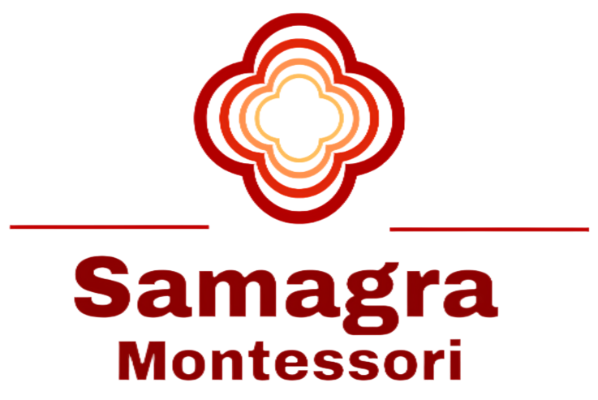CURRICULUM AREAS
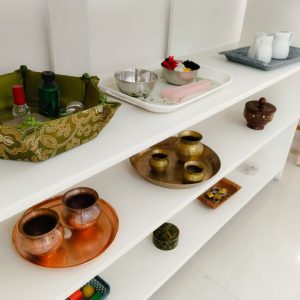
Practical Life
Practical Life Exercises encompass the routine tasks that are integral to our daily lives. We humans have a set of activities that we do on a daily basis which are crucial for the upkeep of ourselves and our space. The child observes us doing these activities from birth and wants to do the same for themselves and become like one of us e.g.: dressing, cleaning, cooking, washing, socialising etc•
Therefore in a Montessori environment the Practical Life activities are offered to them in an order, with the right sized materials and the freedom to work with them at their own pace. These activities not only fulfills the childs desire to do these activities but also aids in developing the child’s fine motor skills, hand-eye coordination, concentration, ability to choose and take responsibility of their choice. They also cover the development of social behavioral skills.
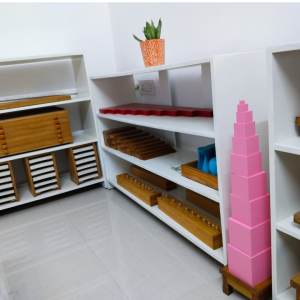
Sensorial
Children between the ages of birth to 6 years are “Sensorial Learners”. This means that they learn and understand through their senses like the sense of touch, feel, taste, smell, taste etc. Senses are the first contact of the child with the world, through which they come to know more and more about the world.
Dr. Montessori has scientifically designed these Sensorial materials in a way which allows the child to refine the chid’s senses in a classified manner. The sensorial materials provide the child with an understanding of dimensions, shapes, colours, textures, sounds, tastes etc, strengthening the various senses which makes him to develop better predictions and judgements. This also prepares them for advanced activities and forms the base for Mathematics, Geometry and Language activities .
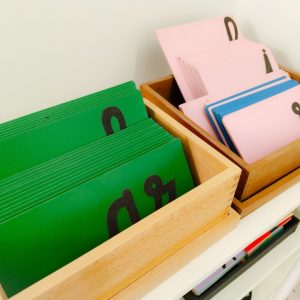
Language
Language is nothing but a mode for expression of thought. When the children come to the Montessori environment they are given the foundation of Spoken Language. Through various games and activities they understand that every word that they hear around are made up of sounds. Then the symbols to those sounds ( phonetic sounds of english alphabets ) are introduced through Sandpaper letters.
The children begin to express themselves through the sounds and cutout letters (movable alphabets) even before they can write. The emphasis is more on formation of words rather than memorizing the spellings of each and every word. They form words through sounds which gives them the key to decode and encode any word that comes to their mind. The children are also introduced to the grammar where they understand them by their function and not by their name. They gradually progress towards writing and reading. Hindi Language is also taught in the similar manner.
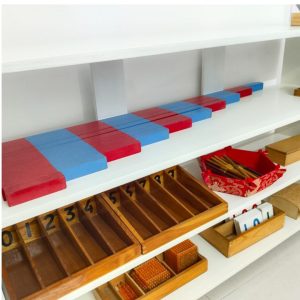
Mathematics
Math is all around us; in nature and in our lives. They have a natural desire to understand what is less and more which they experience with most of the Practical life and Sensorial activities. First we help the child to understand the quantities through various activities and then introduce them to the Numbers. As numbers are nothing but just some symbols that humans decided to represent those quantities.
They are introduced to the Decimal Numbers through the Decimal Beads and then through the Number Cards. The beads help them feel the difference between just one bead and thousand beads. They learn to do continuous counting through the long bead chains. With the help of the Montessori materials they are given in-depth knowledge to the concepts of addition, subtraction, multiplication and division.
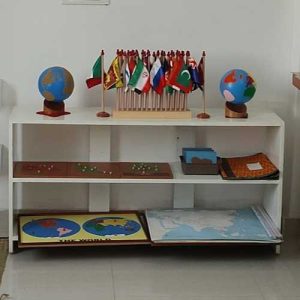
Culture
The children are introduced to geography, history, science, cultural studies, music, art and craft, gardening and much more.
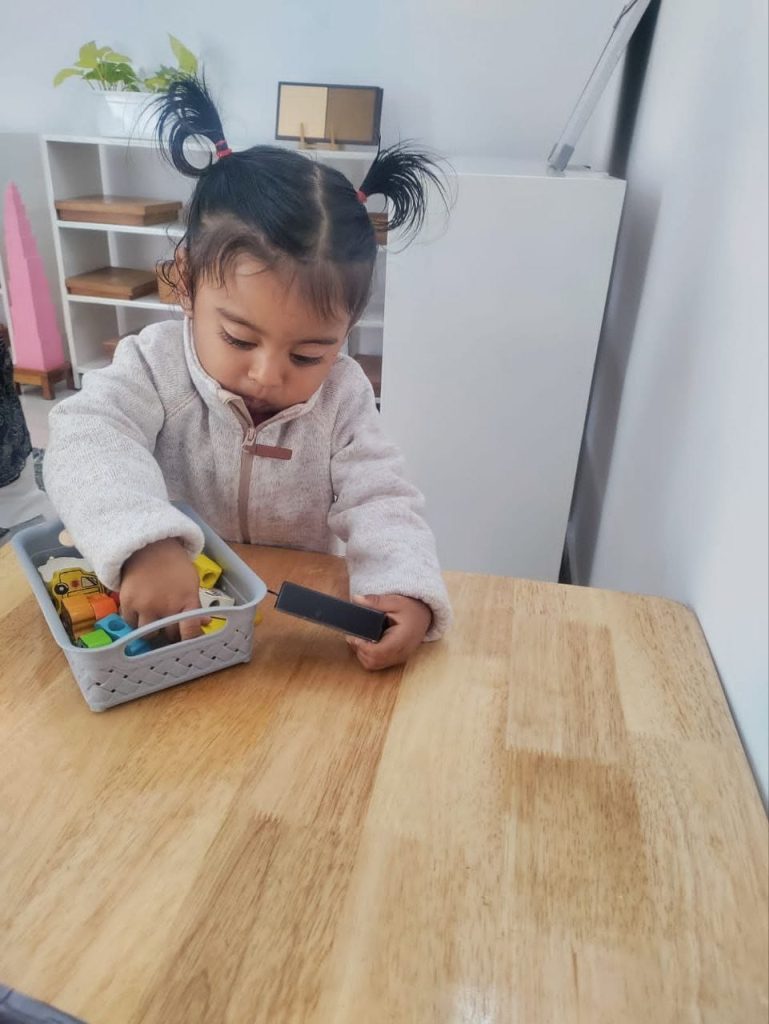
Toddler Program – for children from 18 months to 3 years
- Curriculum for Toddlers:
- Early Practical Life Activities
- Age-appropriate Sensorial Exploration
- Language Development
- Math Readiness
- Creative Arts
- Nature and Outdoor Exploration
- Social and Emotional Development
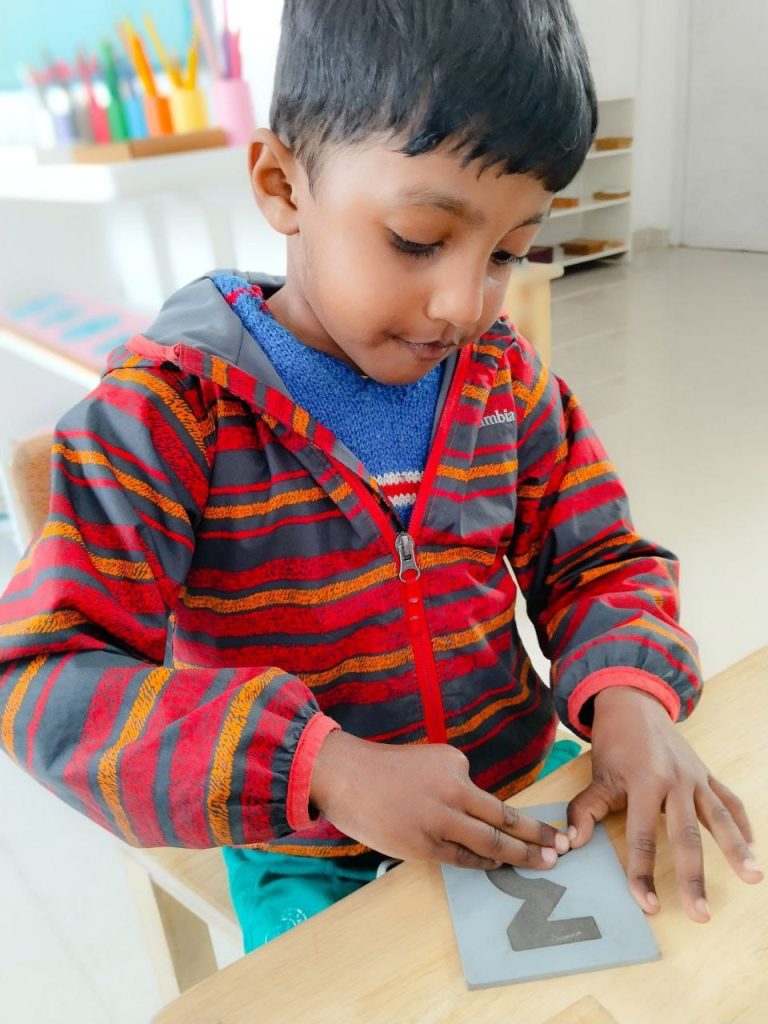
Primary Program – for children from 3 to 6 years
- Practical Life Activities
- Sensorial Exploration
- Language and Literacy
- Mathematics
- Culture
- Science and Nature Studies
- Creative Arts and Expression
- Physical Education
